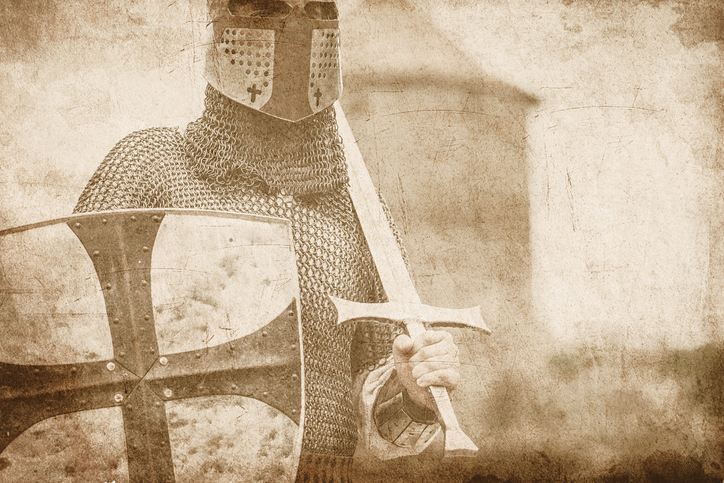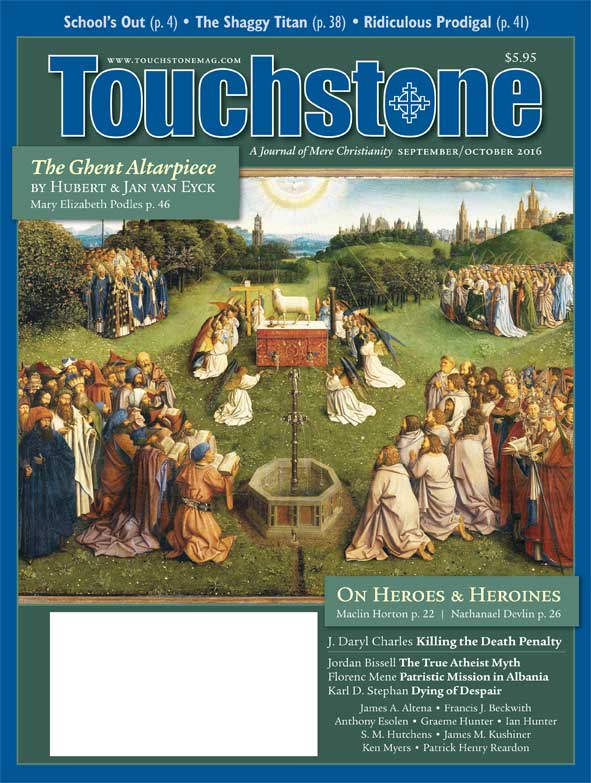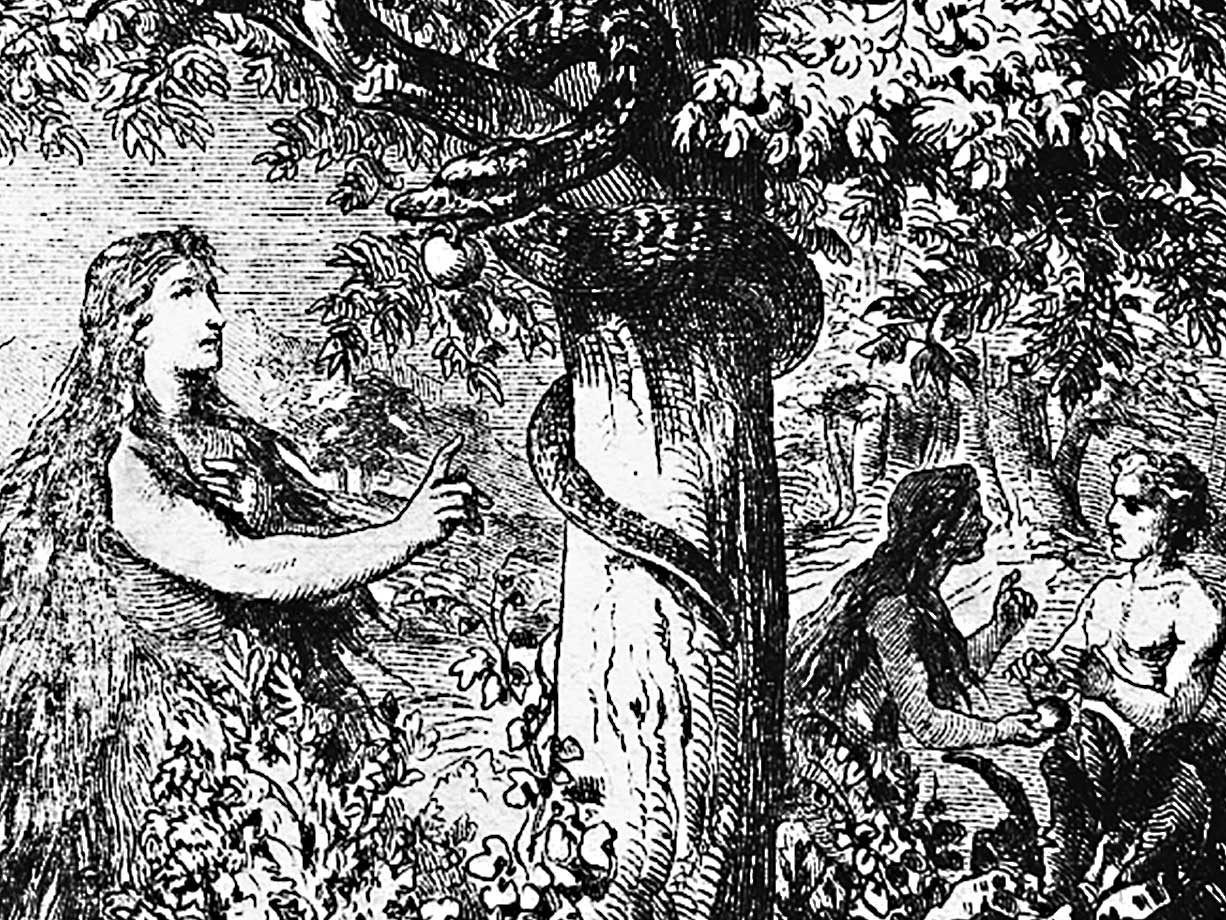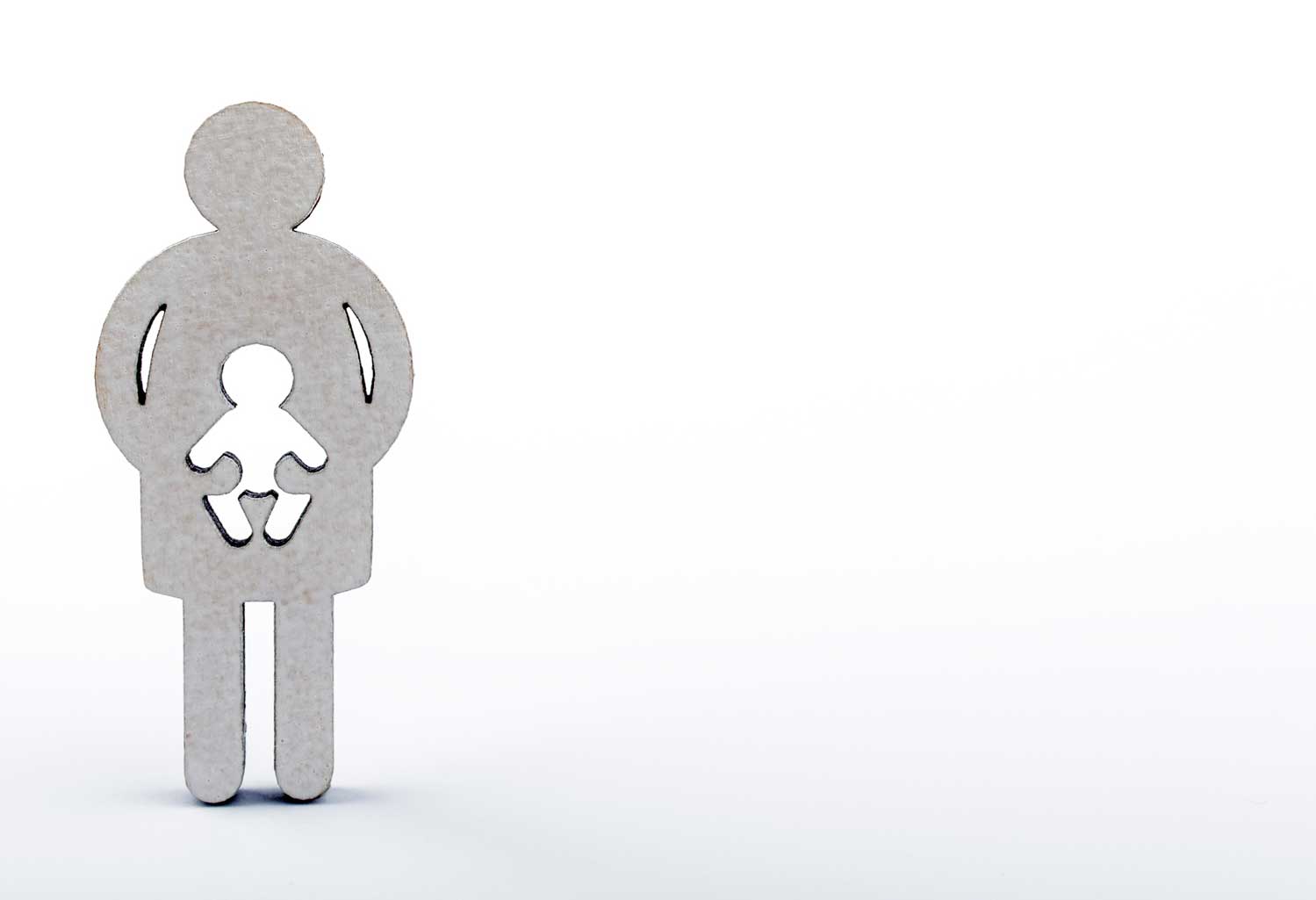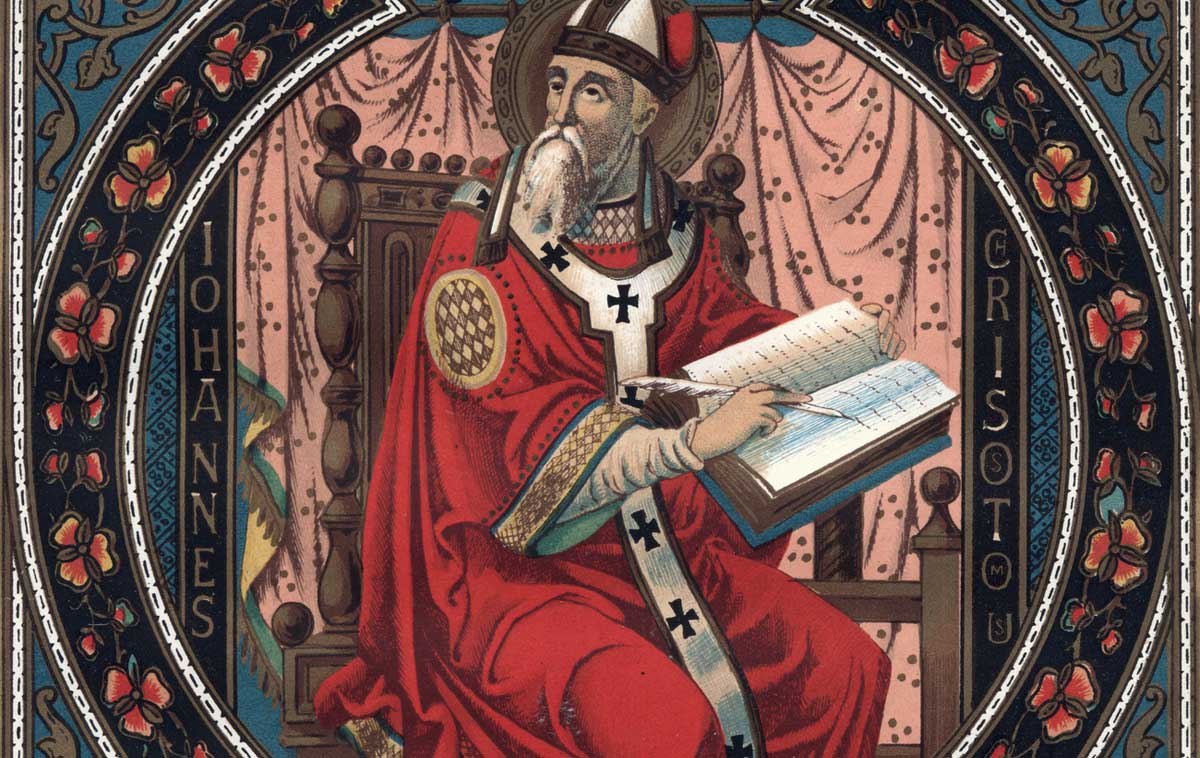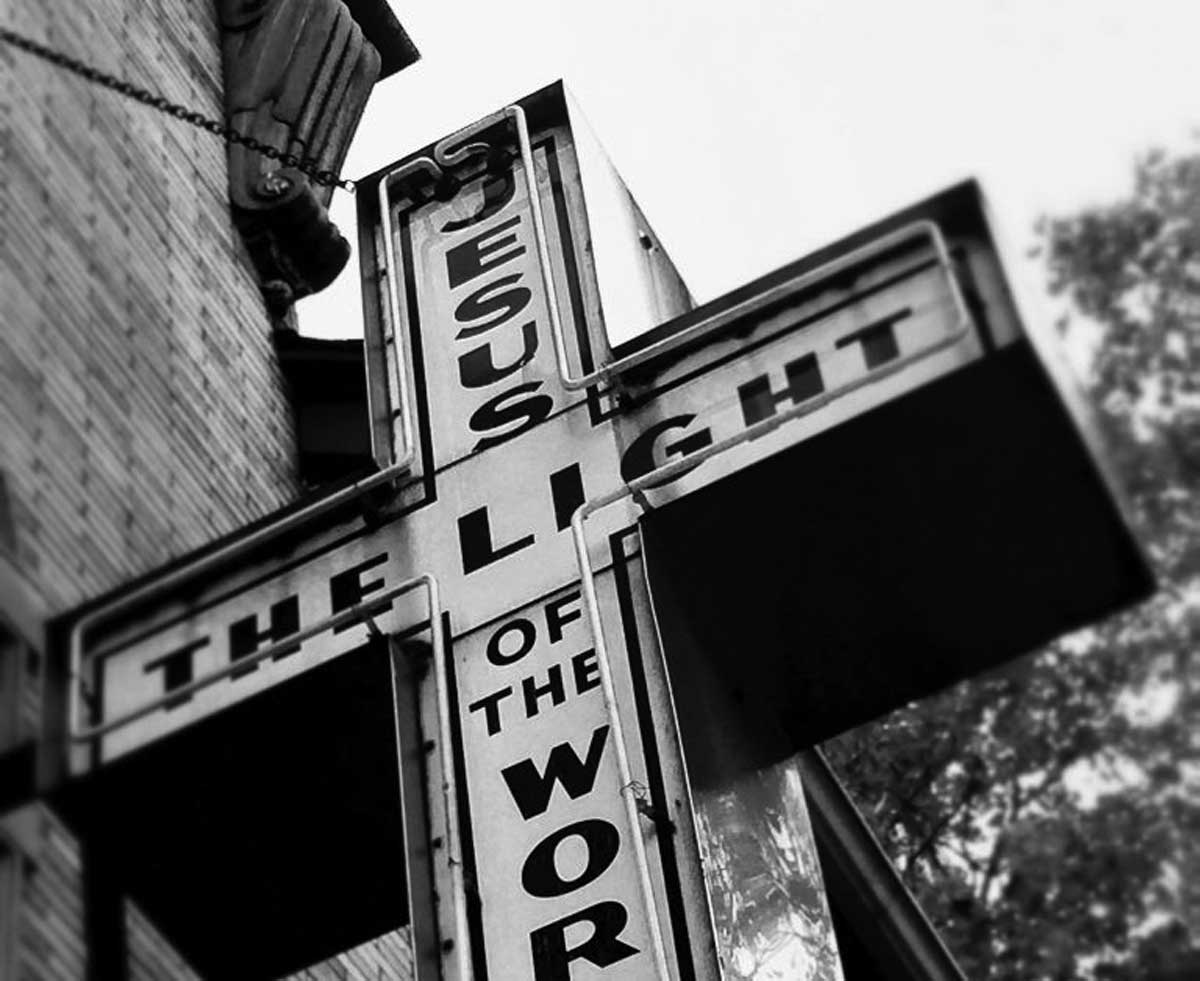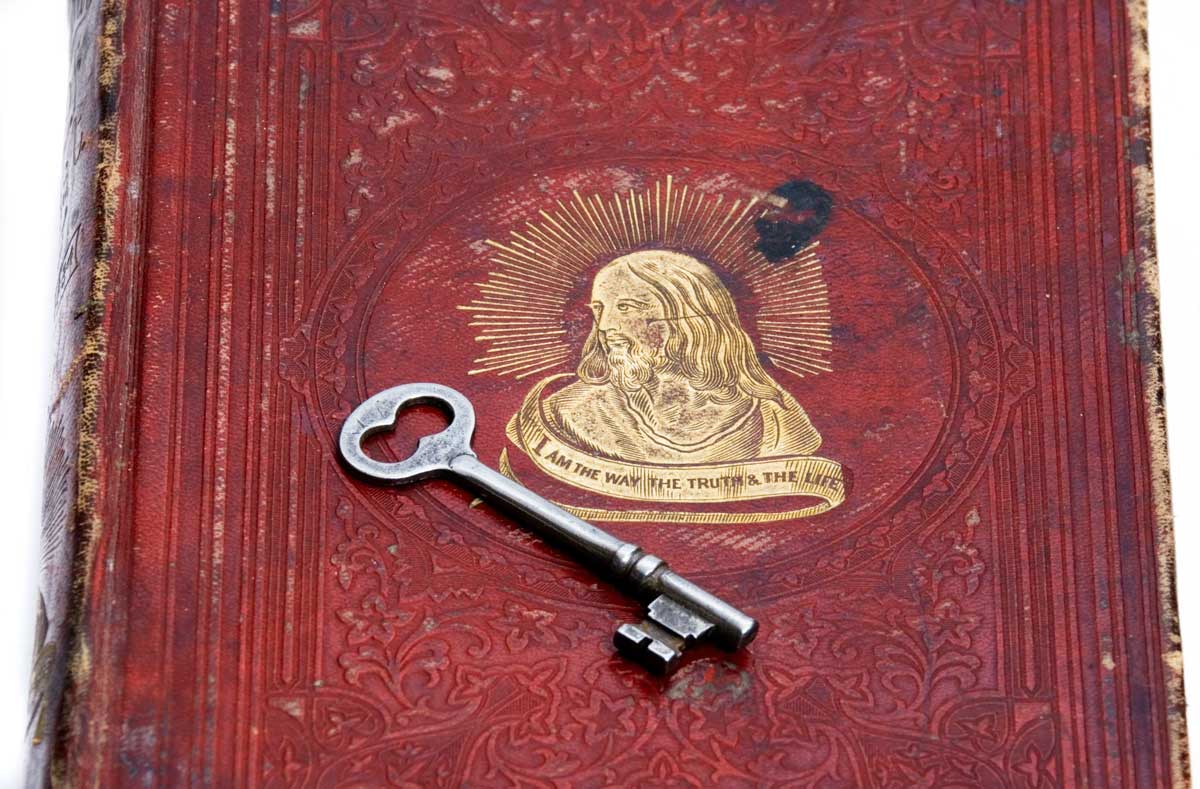Feature
The Feminine Hero
The Modern Versions Are Neither Feminine nor Heroic
As it was for many others who grew up in the late 1970s and early 1980s, the Star Wars saga was firmly established within my young imagination. I've come to cherish—with youthful bias—the original trilogy of movies, holding a presumptive disdain for the heavily CGI'd prequels and a guarded optimism about the direction of the franchise under the ownership of Disney and the directorial guidance of J. J. Abrams. Last winter, along with thousands of others, I succumbed to my curiosity and fulfilled my responsibility to the next generation of Star Wars fans by taking my wife and two children to see the newest episode, Star Wars: The Force Awakens.
In this movie we are introduced to Rey, the new lead character. Because she takes over the character arc of Luke Skywalker, some have suggested that Rey is Star Wars' first female protagonist. That may be, but she is only one of a plethora of female heroes to be found in contemporary comic books, television shows, and movies.
In October 2015, Marvel Comics presented fans with a female Thor, depicting Jane Foster as the rightful heir to the mythical hammer, Mjolnir. Jessica Jones is the no-nonsense, hard-drinking, superhumanly strong antihero of the eponymous web TV series developed successfully by Netflix. Mad Max: Fury Road introduces us to lead character Furiosa, a highly intelligent veteran of wasteland survival, a shrewd truck driver, and an exceptionally talented warrior. And just this summer we were treated to a reboot of the 1984 film Ghostbusters with the original leads recast as female characters.
Tough & Competent
Female leads are, of course, not new to literature, TV shows, or movies, but the standard or ideal for modern heroines is new and still developing. Two characteristics, however, seem indispensible for a modern female hero: toughness and a supremely high level of competence.
Some will say that this true of any hero, asking, "What weak and bumbling idiot can save the day or even command our attention?" It is true that heroes of either sex must be competent enough to complete their task and resilient enough to stand up against and defeat the enemies of their quest. But a hero worthy of our attention does not start out as such, but develops into one as he overcomes his weakness and fear and grows in wisdom and strength. A hero also recognizes that true strength and wisdom include personal sacrifice.
Most modern female heroes do not develop in strength or wisdom; they start out with all the requisite grit, fortitude, ferocity, and know-how to get the job done. Few make personal sacrifices; that looks too much like defeat, and besides, they are unnecessary when one's competence and strength are enough to win the day. A few modern heroines defy this rule, such as Katniss Everdeen in The Hunger Games, who progresses in her heroism. But most simply arrive on the scene already fully resilient and self-sufficient. Long gone are the days of the woman in need of rescue.
Megan Garber, writing about Star Wars: The Force Awakens in The Atlantic ("Star Wars: The Feminist Awakens," December 2015), celebrates the new ideal, dubbing Rey the mythology's "first feminist protagonist":
The plot of The Force Awakens, in fact, revolves around—relies on—Rey's martial abilities. It also gently mocks the characters who would doubt those abilities. Finn, in particular, repeatedly attempts to inject chivalry into situations where chivalry is drastically out of place. During a fight the pair has against the First Order troopers, he runs over to Rey in an attempt to rescue her—only to realize that her attackers have already been neatly dispatched with [sic]. When Finn grabs her hand as they flee, she snaps, "I know how to run without you holding my hand." (A few moments later: "Stop taking my hand!") When Finn asks her, after another battle with intergalactic baddies, "Are you okay?" she shoots him a why-wouldn't-I-be look. She replies, simply, "Yeah."
They're good jokes, but also loaded ones. . . . The broader joke embedded in all these small ones is that all the stuff that makes for chivalry (and inequalities, and patriarchy, and if you stretch things only a teeny bit, maybe even gender itself) is itself extremely contingent. It would never occur to Rey that she would be in need of chivalry's attentions. She has neither the luxury nor the burden of being a damsel in distress; she's too busy surviving. She fights alongside men and women and droids, superficial matters of identity—clothing, appearance, even gender—all subsumed under bigger questions that come down to, basically: "Can you fight?"
One wonders, however, whether characters like Rey, with all their fierceness and omnicompetence, really reflect the true nature of either feminism or heroism, or whether, in our culture's efforts to bring the feminine hero to center stage, it has lost the essence of both.
Chivalry Cast Off
Rey is in no need of chivalry's attention, says Garber. She is tough and competent, so there is nothing that chivalry can offer her. Garber might be right if chivalry were needed only to support the weak and incapable, but there is more to it than this. In "The Necessity of Chivalry" (from the anthology Present Concerns), C. S. Lewis traces the ideal back to the Middle Ages and suggests that chivalry includes meekness. He notes that Sir Lancelot, the most chivalrous knight in King Arthur's court, is described as "the meekest man that ever ate in hall among ladies; and thou wert the sternest knight to thy mortal foe that ever put spear in the rest."
A chivalrous knight is "a man of blood and iron" Lewis continues, "a man familiar with the sight of smashed faces and the ragged stumps of lopped-off limbs; he is also a demure, almost maidenlike, guest in hall, a gentle, modest, unobtrusive man." Moreover, "he is not a compromise or happy mean between ferocity and meekness; he is fierce to the nth and meek to the nth." He needs the former to avoid cowardice and the latter to avoid barbarism, yet combining the two characteristics is not easy. They make a double demand on human nature.
Already in his time, Lewis saw that the ideal of chivalry was being cast off and denigrated as "weak sentimentality" by the enlightened. To today's feminist, it is not only weak sentimentality—it is deadly. Chivalry tempers ferocity with virtues the Middle Ages understood as quintessentially feminine: meekness, gentleness, and modesty. But these moral excellences are precisely what the modern feminist must be emancipated from; to identify with them in any way is to take a step backward.
Today's heroine can combine sexiness and allure with her ferocity and martial prowess, but never meekness or gentleness. For this reason, she can never be truly feminine. She is too one-sided—a monolith of toughness. As such, she is like a song when only half the notes are played; her ideal is untenable, the whole thing crumbling as the feminine is consumed by the ferocious.
Two Kinds of Imagination
Sir Philip Sidney, in The Defense of Poesy, discriminates between the icastic and the fantastic imagination. The icastic imagination has the power of insight to see the good, the true, and the beautiful, and it casts a poetic vision of how things ought to be. It works in accord with reality to create stories in which the kingly lion lays down his life for the traitor, or the devoted spider befriends and looks after the scared little pig, or the smallest and least likely of heroes carries the ring of power to its destruction and the defeat of the armies of darkness.
Conversely, the fantastic imagination casts a vision of a future that is often misshapen, sometimes frightening, and always out of accord with reality. It produces stories that tell of the rise of the planet of the apes, of the machine that becomes more human than real people, or of the raunchy teddy bear that comes to life and fights Congress for the right to marry whomever he wants.
Our modern cultural imagination is fantastic, desiring what cannot or ought not to be. The proponents of the modern feminist hero want us to believe there are no distinctions between male and female heroes, but we know this is not true. Physically, a woman simply cannot outmatch and outfight her male counterparts. But our stories suggest otherwise to the point of effectively denying the real physical differences between men and women. Fantastic elements such as "The Force" or "top-secret training" level the playing field, and we are invited to suspend our disbelief as we watch the heroine do all that the men do and more. The fantasy tells us that a woman can outmatch any opponent, regardless of his size, strength, sex, cosmic origins, or any other factor. Moreover, she can do it without suffering any harm to her physique, beauty, interests, or happiness.
This sort of fantasy is nothing new; in fact, it is quite ancient. It is the fantasy that we can be all things to ourselves, fully self-sufficient, almost god-like. It is the same fantasy that the serpent used to tempt Eve to take the forbidden fruit and eat it, "for God knows that in the day you eat of it your eyes will be opened, and you will be like God."
Two Kinds of Hero
"When Finn asks her, 'Are you okay?' she shoots him a why-wouldn't-I-be look. She replies, simply, 'Yeah.'" Rey is okay because she is competent; in fact, she appears to be omnicompetent. She is an expert pilot, a skilled fighter, and a robotics engineer; she is untrained in the ways of The Force yet uses The Force ably; she can wield a lightsaber and even defeat a well-trained adversary from the Dark Side.
Rey is so competent, in fact, that some critics have described her as a "Mary Sue." A "Mary Sue" (or Marty Stu for male characters) is a character who is exceptionally talented in an implausibly wide variety of areas and who lacks any realistic, or at least story-relevant, character flaws. What flaws she does have are meant to be -endearing.
If heroism is defined by the absence of weakness and the ability to dispatch the enemy with ease through superior skill and competence, then, yes, Rey is a hero. But if heroism is defined as self-sacrificial love that puts others ahead of one's own well-being or comfort, and that serves without any expectation of gain; if it requires some level of vulnerability in the life of the hero—then we must look elsewhere for our model.
Orual & Psyche
Again, Lewis is a helpful guide. In his last work of fiction, Till We Have Faces, he introduces us to the sisters Orual and Psyche, daughters of the King of Glome. Orual is ugly and rejected by her father, but Psyche is beautiful, gentle, and winning. In fact, the people so revere Psyche that they begin to seek her blessing over that of their local nature goddess, Ungit.
When the angered Ungit sends drought and plague to devastate the land of Glome, the priests tell the king that the plague can only be lifted if Psyche is sacrificed to Ungit's son, the Brute. The king is willing, but Orual objects; she deeply loves her younger sister and cannot fathom life without her. Nevertheless, Psyche herself chooses to give her life away for the sake of her country, and Orual cannot prevent her from being carried away to the holy mountain and left there.
Later, Orual journeys to the mountain to recover her sister's remains, and discovers that Psyche is still alive and, even more amazingly, happy. Psyche tells Orual that she was not consumed by the Brute but has instead become his bride. She appears delighted to be the wife of the god, but Orual thinks she is imagining things and insists that Psyche come away with her. Psyche refuses, and eventually the possessive Orual browbeats her into transgressing her husband's sacred command. As a result, Psyche is exiled, and Orual receives a vision from the god that haunts her for the rest of her life.
Not long after, the king of Glome dies, and Orual ascends the throne. As queen, she exhibits the two primary traits of the modern feminine hero: ferocity in battle (her loyal captain, Bardia, had taught her martial skills) and competence in rule, spending long hours on her judgment seat and always making the right decision. She is beloved by her people but also detached from them, for she never appears without a veil covering her face. In time, her identity as Orual is lost; she is only the queen of Glome.
Finally, when Orual is old and ill, she is granted a second vision by the gods. Through stories depicted in mystical paintings, she learns that it was Psyche who served Glome faithfully, not she, and it was Psyche who saved the people from destruction. She saved them through her demure, maidenly innocence. She was not shrewd, or fierce, or omnicompetent; she loved and was obedient. By contrast, Orual comes to see her own selfishness. Yes, she suffered greatly in service to her kingdom, but through the heavy demands she placed on them, she consumed those she loved.
After this, still in the vision, Orual is taken to meet Psyche, whereupon she declares,
Now I knew she was a goddess indeed. Her hands burned me when they met mine. The air that came from her clothes and limbs and hair was wild and sweet; a youth seemed to come into my breasts as I breathed it. And yet with all this, even because of this, she was the old Psyche still; a thousand times more her very self than she had been before the Offering. For all that had then but flashed out in a glance or a gesture, all that one meant most when one spoke her name, was now wholly present, not to be gathered up from hints nor in shreds, not some of it in one moment and some in another. Goddess? I had never seen a real woman before.
A voice then announces that the god, Psyche's husband, is coming. Glory fills the space; Orual feels herself being unmade but discovers that she is also remade beautiful, reflecting the beauty of her sister Psyche. "You also are Psyche," declares a great voice. Like Psyche, Orual is now a real woman and a true feminine hero. She has become one by grace.
The True Feminine Hero
The standard traits of the modern feminine hero are toughness and competence. No weakness, no vulnerability, no need of another's help is displayed. In reality, such a character is neither feminine nor heroic, but as she becomes more prevalent in our culture's stories, she crowds out the true feminine heroes and hinders us from imagining anything different. The loss is severe, for humanity needs true feminine heroes.
We need the story of a modest virgin who is approached by God through the voice of an angel announcing,
Greetings, O favored one, the Lord is with you! . . . Do not be afraid, Mary, for you have found favor with God. And behold, you will conceive in your womb and bear a son, and you shall call his name Jesus. He will be great and will be called the Son of the Most High. And the Lord God will give to him the throne of his father David, and he will reign over the house of Jacob forever, and of his kingdom there will be no end. (Luke 1:28–33)
We need this story because each one of us is approached by God in Jesus Christ. We are approached by the awesome, the terrible, the beautiful, the One who, in relation to us, is both numinous and masculine. He is the Bridegroom who is coming to meet his bride and who invites us to take the Word into ourselves by grace through faith. We, for our part, need a model to show us the proper way to respond. We need the demure, maidenly, gentle, modest, unobtrusive Mary, who does not think of herself, who displays to the world not fierceness or competence but humility, vulnerability, and courage as she replies, "Behold, I am the servant of the Lord; let it be to me according to your word" (Luke 1:38).
Without such a model, our inclination will be to trust in our own strength and competence, for this is what our modern heroes do. And for a while, we may be all right. We may win a few battles, but eventually our strength and competence will fail, and, like Orual, we will find ourselves behind a veil, men and women without faces. We will be without identity, without country, without home or song. Mary is a true feminine hero. She is considered neither tough nor competent, but is the model for all mankind. •
Nathanael Devlin is the Associate Pastor at Beverly Heights Presbyterian Church (EPC) in Pittsburgh, Pennsylvania. He is a graduate of Trinity School for Ministry in Ambridge, Pennsylvania. He and his wife have three children and live in Mt. Lebanon.
subscription options
Order
Print/Online Subscription

Get six issues (one year) of Touchstone PLUS full online access including pdf downloads for only $39.95. That's only $3.34 per month!
Order
Online Only
Subscription

Get a one-year full-access subscription to the Touchstone online archives for only $19.95. That's only $1.66 per month!
bulk subscriptions
Order Touchstone subscriptions in bulk and save $10 per sub! Each subscription includes 6 issues of Touchstone plus full online access to touchstonemag.com—including archives, videos, and pdf downloads of recent issues for only $29.95 each! Great for churches or study groups.
Transactions will be processed on a secure server.
more on feminism from the online archives
more from the online archives
calling all readers
Please Donate
"There are magazines worth reading but few worth saving . . . Touchstone is just such a magazine."
—Alice von Hildebrand
"Here we do not concede one square millimeter of territory to falsehood, folly, contemporary sentimentality, or fashion. We speak the truth, and let God be our judge. . . . Touchstone is the one committedly Christian conservative journal."
—Anthony Esolen, Touchstone senior editor





